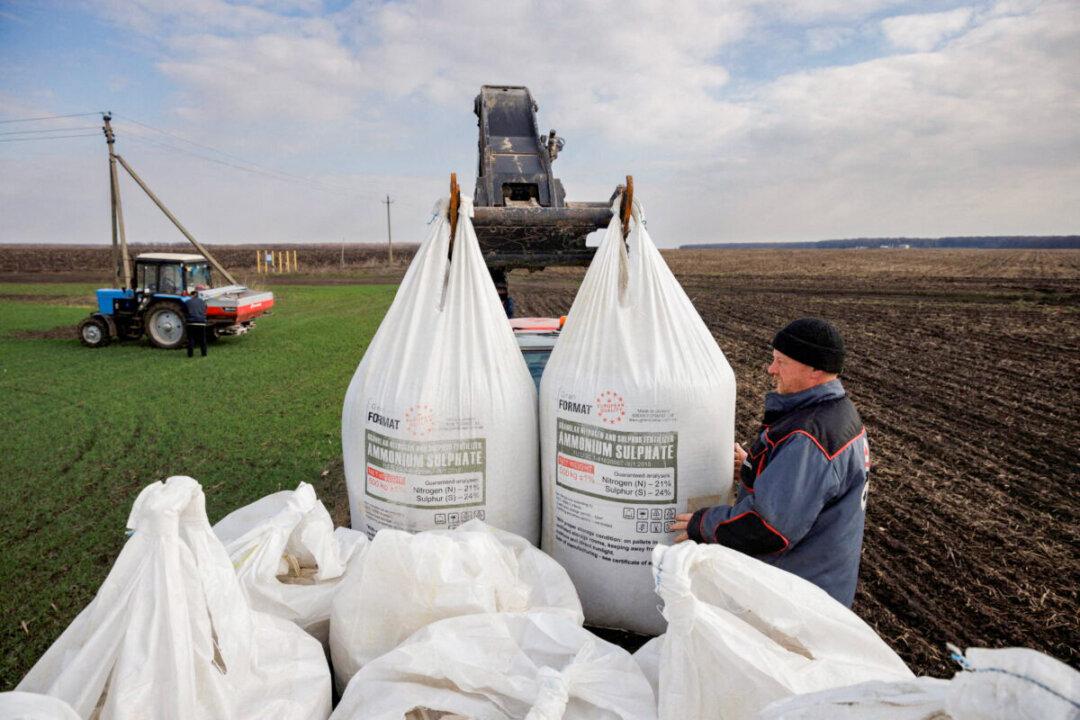PARIS—Spiralling costs for farm inputs like fertiliser could deter growers from expanding production and worsen food security in poorer countries facing record import bills, the United Nations’ food agency said on Thursday.
An index of input costs for farmers was running at a record high and had climbed more steeply than food prices in the past year, suggesting low prices in real terms for many farmers, the Food and Agriculture Organization (FAO) said in a report.





